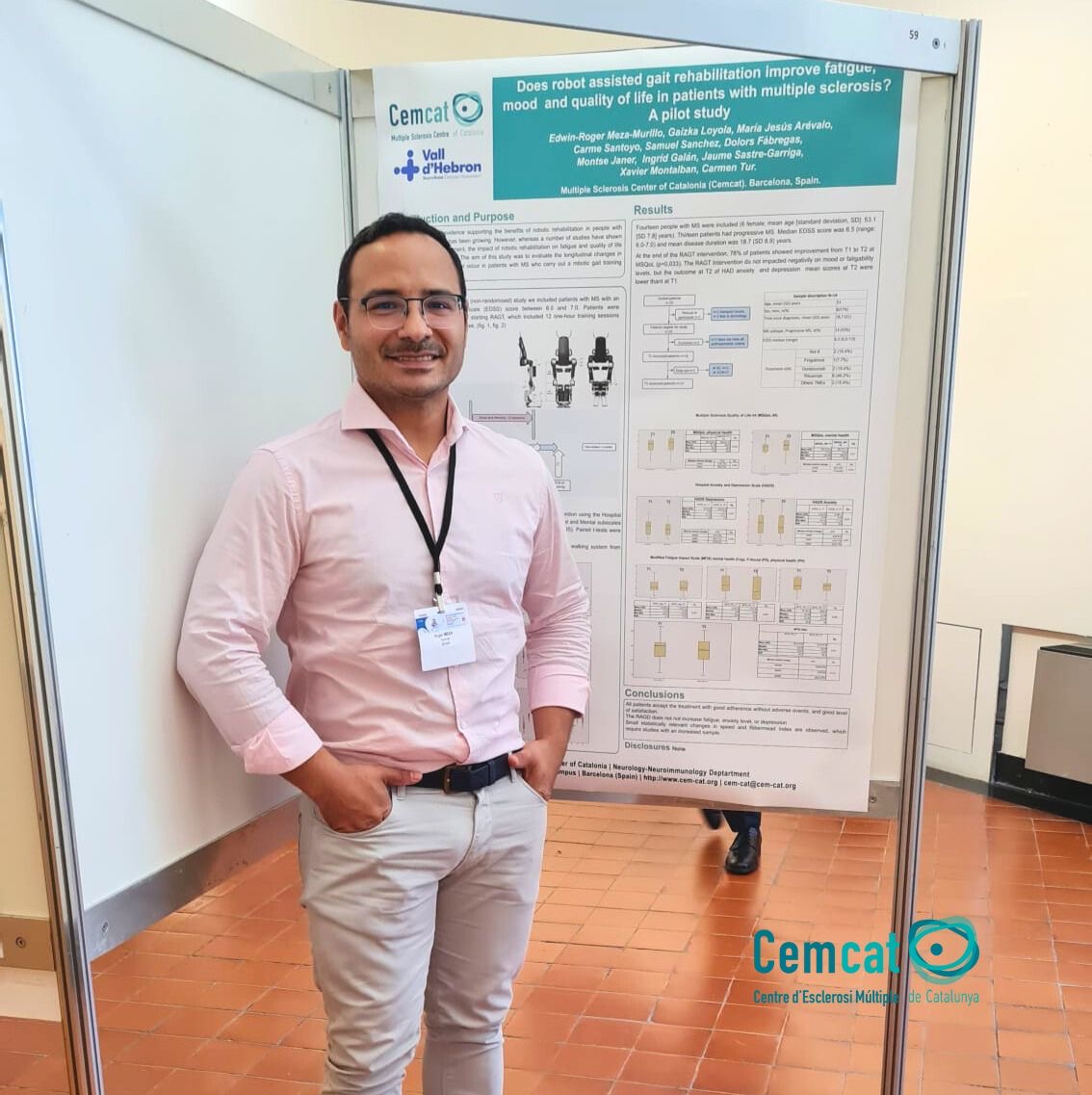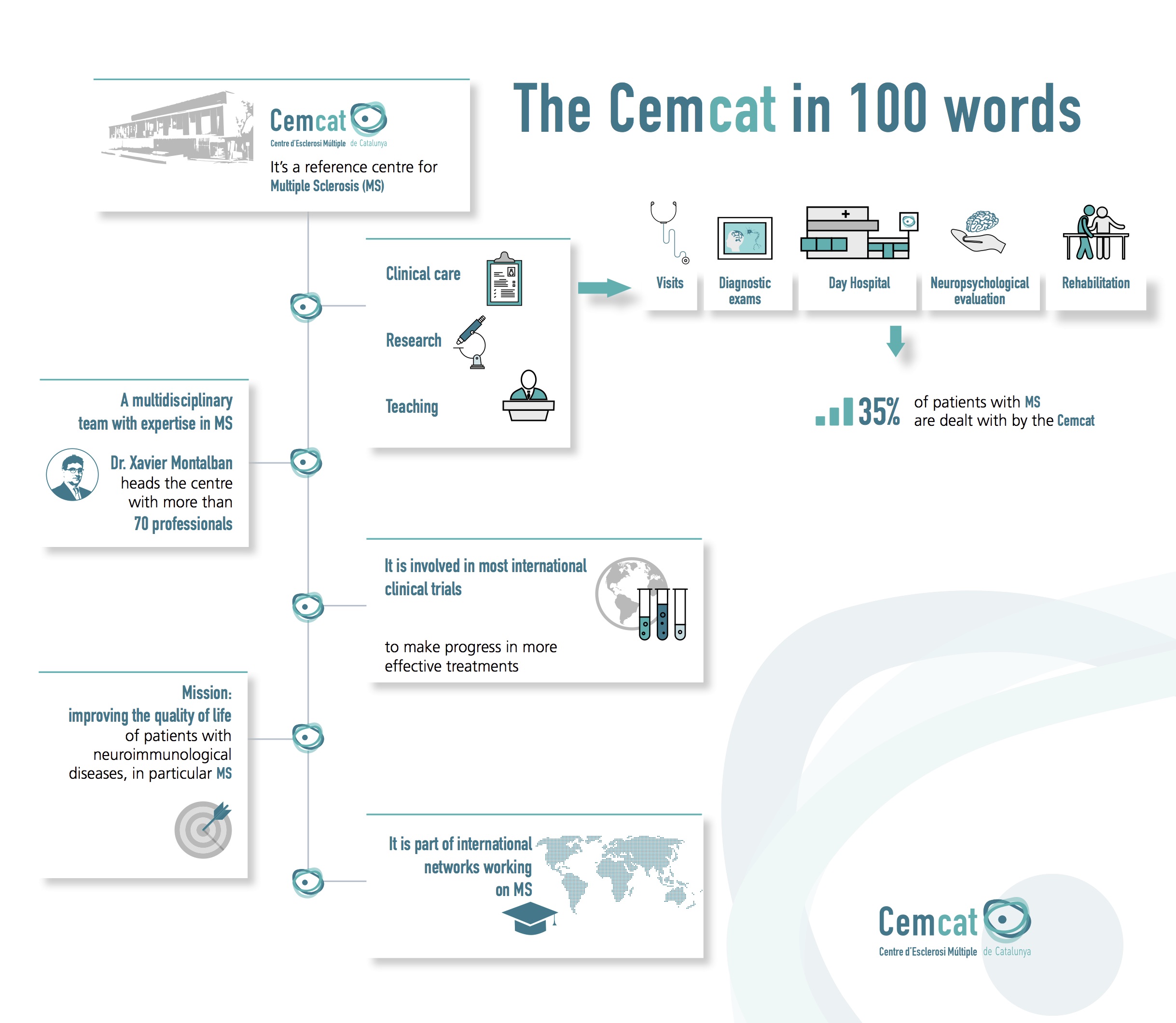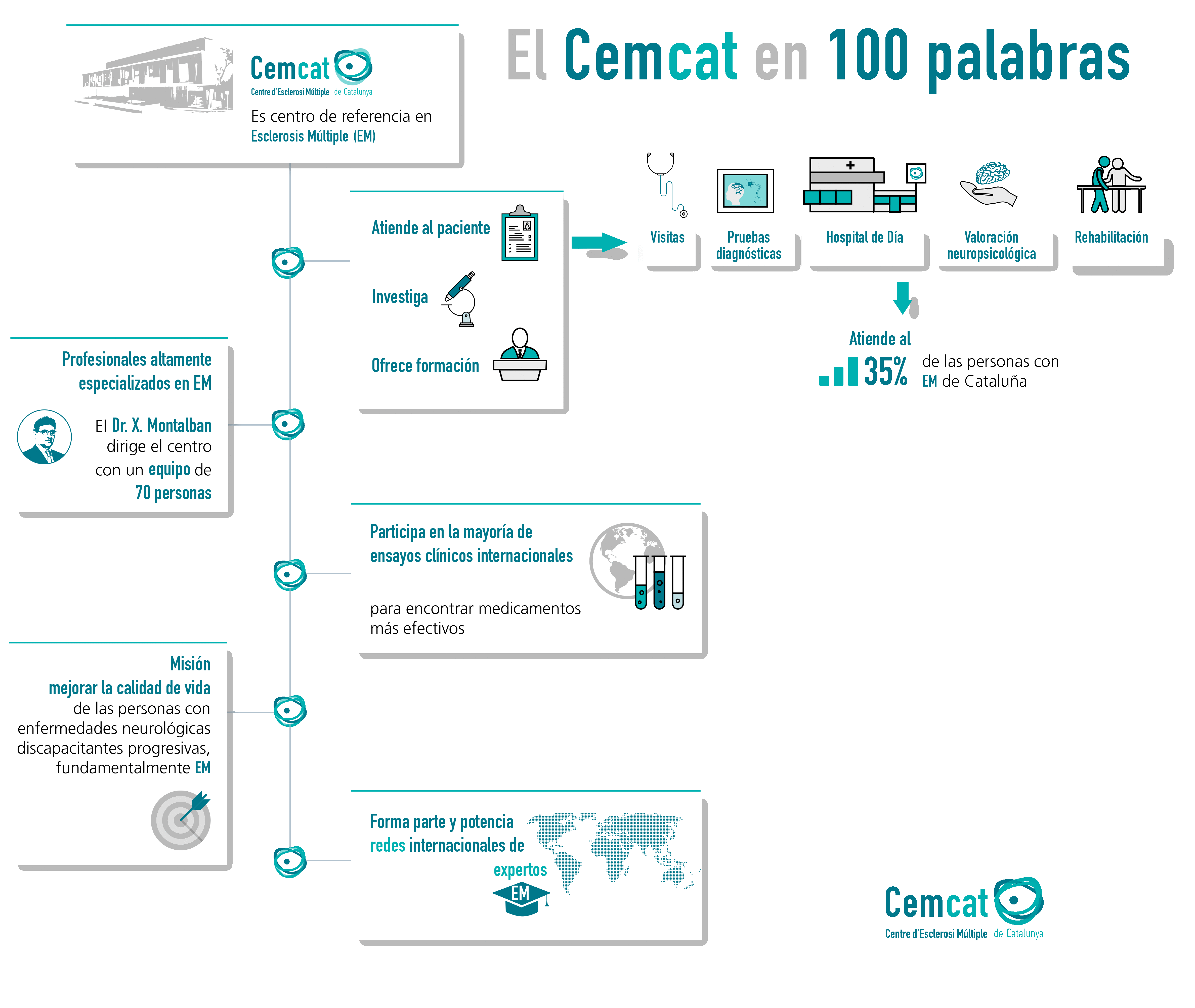You are here
Cemcat presents the latest results obtained in neurorehabilitation research for Multiple Sclerosis at the RIMS 2023 Annual Conference
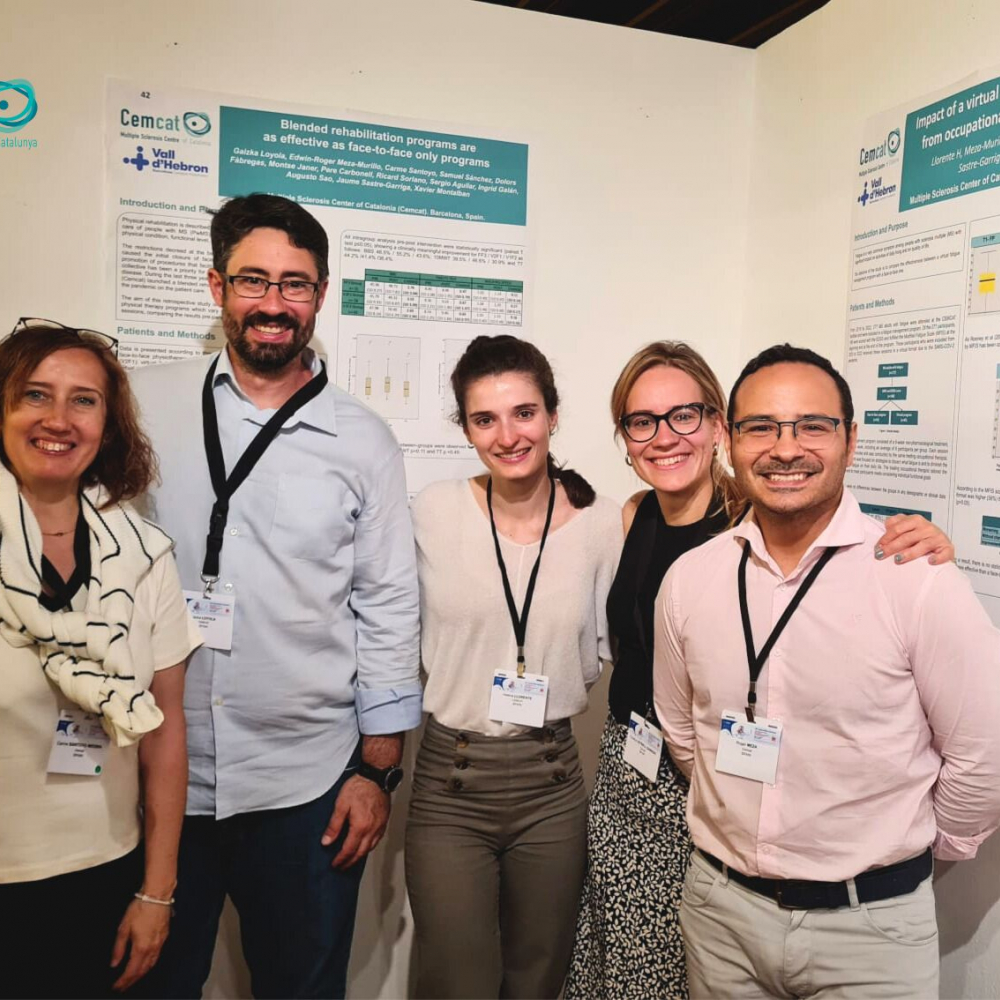
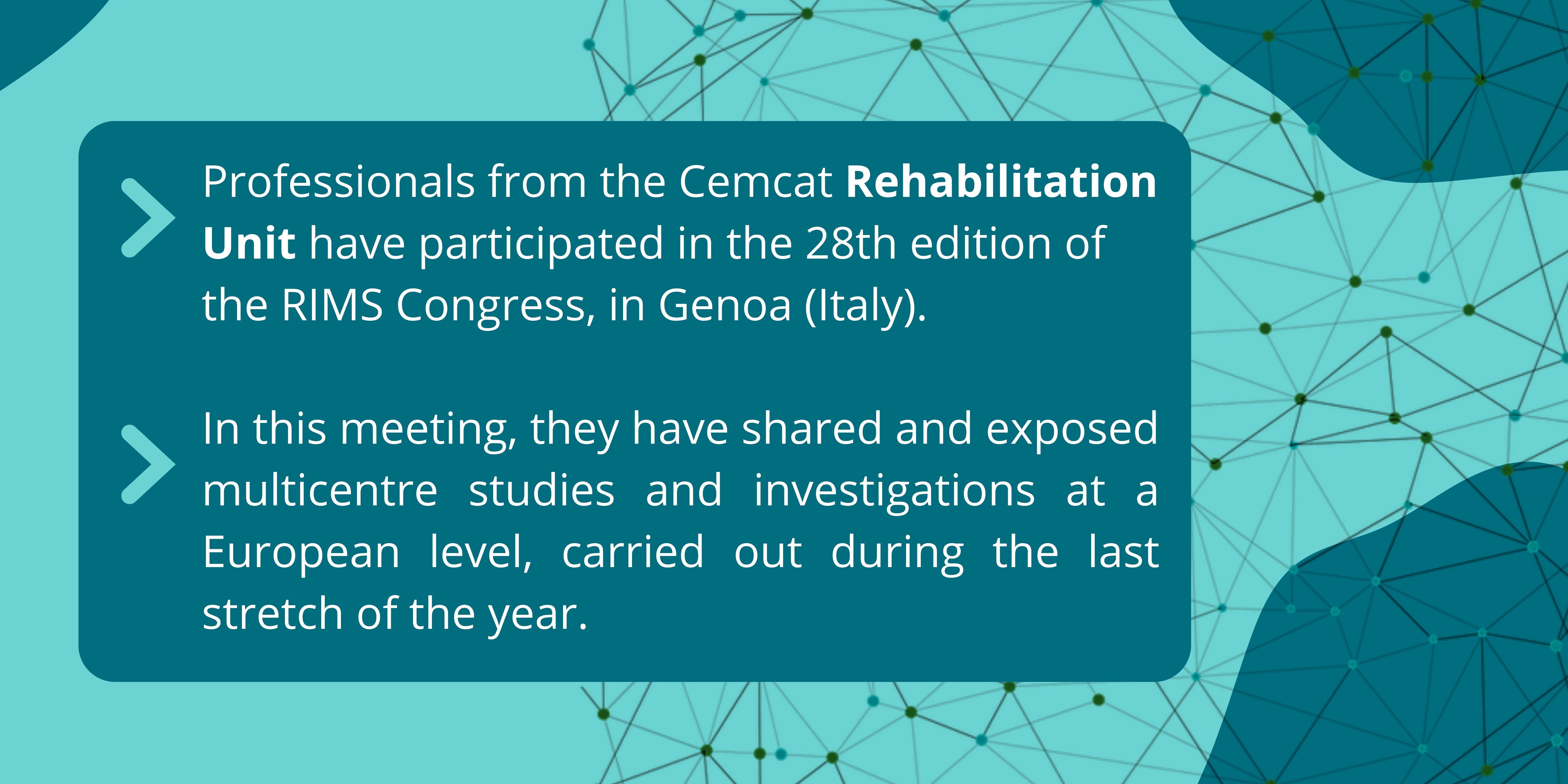
This May, members of the Rehabilitation team of the Multiple Sclerosis Center of Catalonia (Cemcat) have participated, once again, in the 28th annual RIMS Conference (Rehabilitation in Multiple Sclerosis), the main European event on rehabilitation in Multiple Sclerosis that brings together different health professionals: neurorehabilitation doctors and neurologists, nurses, neuropsychologists, physiotherapists, occupational therapists, speech therapists, social workers, among others.
This year, RIMS has proposed a scientific program with the motto "Translating knowledge into practice: accepting the complexity of the rehabilitation of Multiple Sclerosis" in which it has addressed innovative points such as the application of current and future technologies in neurorehabilitation and at the same time it has strengthened the importance of the multidisciplinary approach.
What is RIMS?
The RIMS Conference (Rehabilitation in Multiple Sclerosis) is the pioneer meeting point in the European area on rehabilitation in Multiple Sclerosis. It gave the starting signal in 1995, in Brussels, as a result of the will to articulate a European network with a double perspective: to promote an adequate praxis of rehabilitation techniques and, in parallel, to advance in the investigation of the disease based on a multidisciplinary and holistic approach. All this, to achieve a common goal: to provide and preserve the long-term autonomy of people with Multiple Sclerosis, through tasks based on evidence and shared knowledge.
Multiple Sclerosis is a neurological disease that affects millions of people around the world, and rehabilitation is an essential tool for the treatment of the disease. It is for this reason that the Cemcat team shares its experience each year in international scientific forums and emphasizes the importance of approaching clinical practice from a personalized approach, apart from a multidisciplinary one, to achieve precise and optimal results.
Active presence of technology and robotics in applied rehabilitation at Cemcat
Cemcat has presented the latest advances in research and clinical practice within the field of rehabilitation in Multiple Sclerosis with various oral sessions and posters. Dr. Roger Meza, Neurorehabilitation care coordinator at Cemcat, presented the poster "Does robot assisted gait rehabilitation improve fatigue mood and quality of life in patients with multiple sclerosis? A pilot study", in which he presented the preliminary results of the application of an exoskeleton in the rehabilitation of patients with Multiple Sclerosis.
This is a study that shows that the application of therapy through programmable exoskeletons is well tolerated by the people included in the project, while it does not increase symptoms such as fatigue, anguish or depression. At the same time, the results obtained support an improvement in the performance to be studied in a larger sample.
Virtual rehabilitation: an effective card within the game board
As a result of the pandemic, Cemcat got up to date in record time and began to perform virtual assistance to carry out assessments and apply treatments that did not require the physical presence of people. People with Multiple Sclerosis and professionals found themselves immersed in a moment of change in which it was necessary to incorporate new strategies so that the continuity of treatment was not interrupted.
Precisely, one of the fruits extracted from this emergency scenario is the poster "Blended rehabilitation programs are as effective as face-to-face only programs", in which Gaizka Loyola, a Cemcat physiotherapist, presented an analysis of the results obtained from the implementation of a rehabilitation program that combines face-to-face therapy with virtual therapy.
After exploring and implementing this new service route, it is verified that the results obtained are positive and similar to traditional face-to-face rehabilitation.
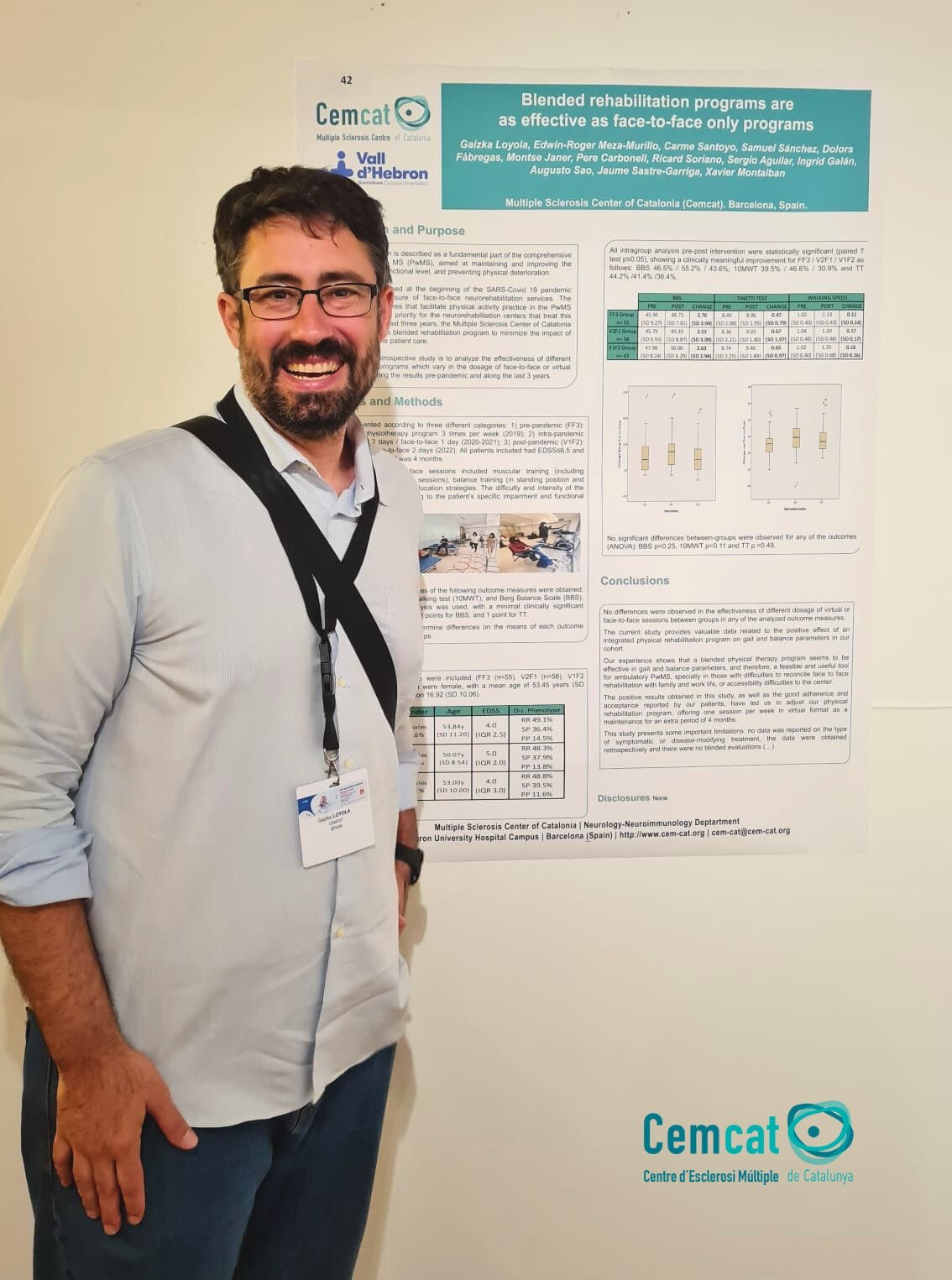
By her side, Helena Llorente, Cemcat occupational therapist, presented the poster "Impact of virtual educational workshop from occupational therapy on fatigue", addressing the application of virtual methodologies in the treatment of fatigue, a frequent symptom in Multiple Sclerosis.
In this case, Cemcat presented the improvements obtained in fatigue patterns, measured by a sample of patients from the center.
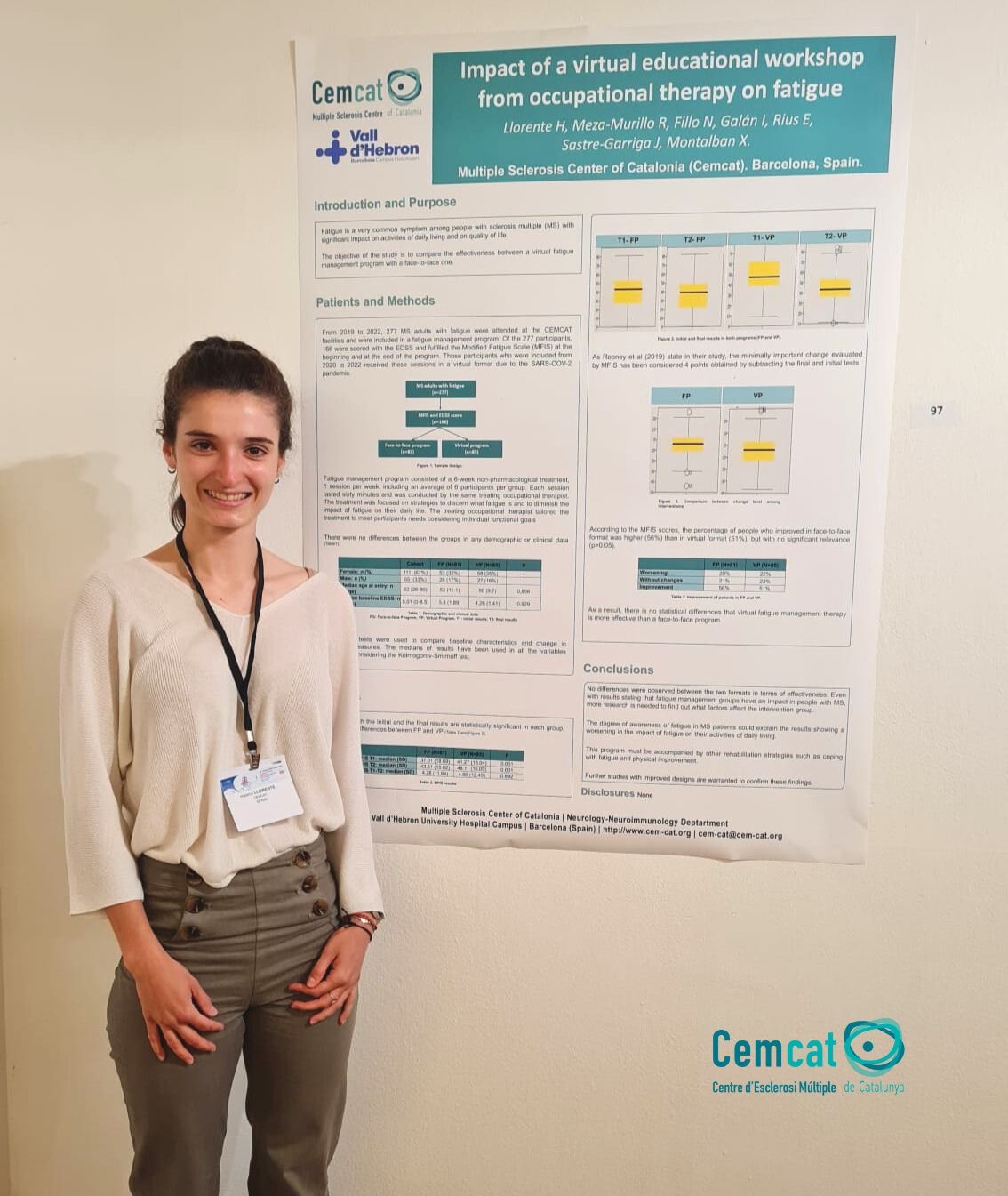
After a comparison of the results obtained between the users to whom a face-to-face treatment has been applied and the patients who have received treatment in virtual format, the conclusions obtained show that the users to whom a rehabilitation in virtual format has been applied they have also experienced the same significant improvements on the Fatigue Symptom Scale.
Therefore, it is verified that the application of virtual rehabilitation methodologies can be just as beneficial and achieve the same impact as face-to-face treatment protocols, with the aim of reducing the incidence of Multiple Sclerosis symptoms -such as fatigue- in the daily life.
Significant leadership of Cemcat within the SIG interest groups
Representing Cemcat, Carme Santoyo, a physiotherapist at the center, is the coordinator of the SIG Mobility interest groups, where knowledge is shared and discussed to improve and refine practices in the rehabilitation of people living with this disease, explore new strategies or treatment approaches, promote research and put on the table protocols that improve the health quality of life of people living with Multiple Sclerosis.
In this context, Cemcat actively participates in these focal interest groups, co-leading several multi-centre projects, among which the studies that address the incidence of Covid-19 on the physical activity of patients at a European level stand out or the impact of dual tasks on people's daily functionality.
In parallel, Carme Santoyo has also been the coordinator of the workshop "Psychometric properties of three self-report questionnaires assessing dual-task difficulties in people with multiple sclerosis: A multicenter study within the RIMS network", where the obstacles presented by the people with Multiple Sclerosis when performing two activities simultaneously.
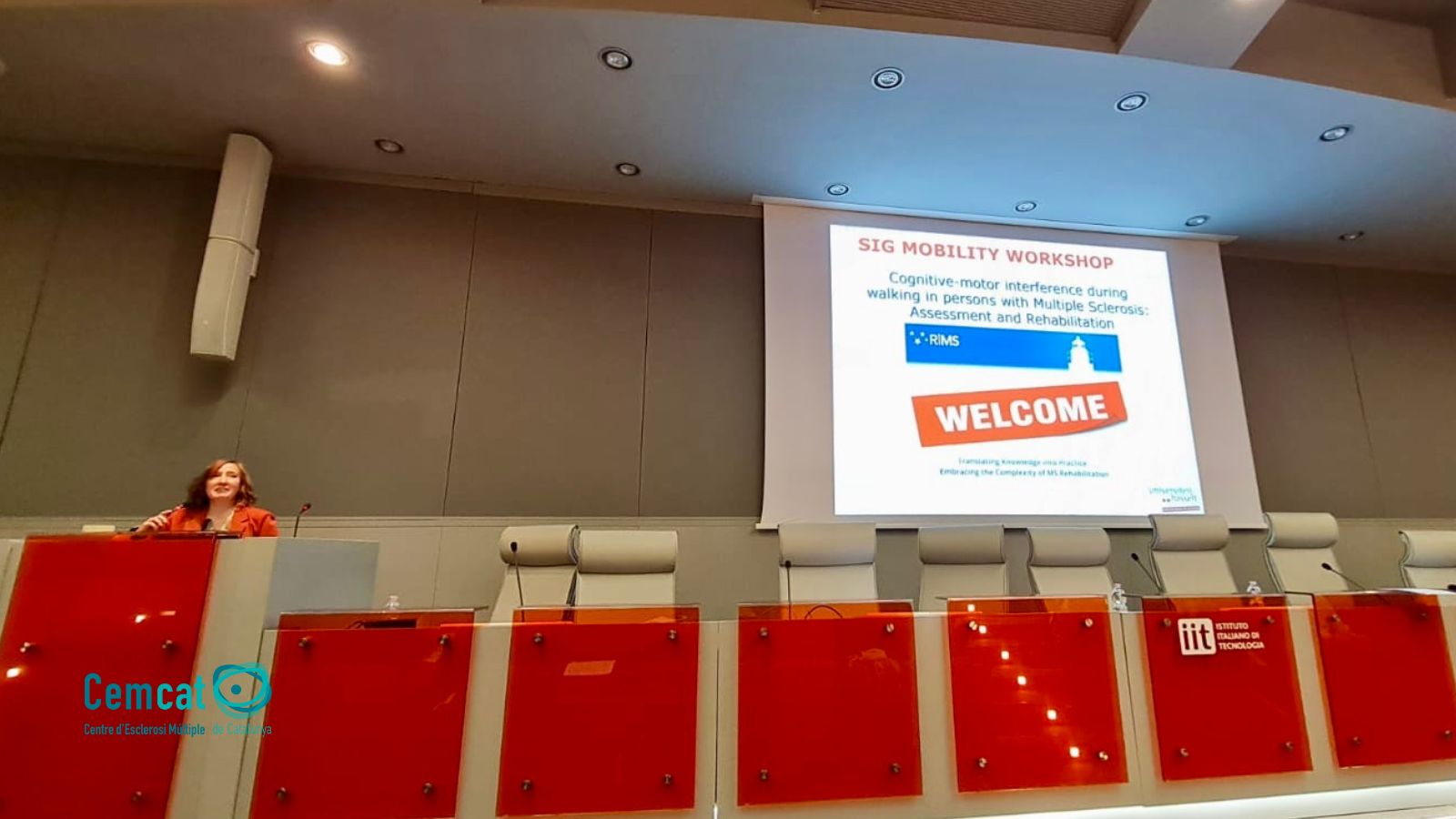
In addition, Cemcat incorporates two new members into the SIG interest groups: Helena Llorente, Cemcat occupational therapist who has joined the SIG Autonomy, and Cristina Ustrell, a speech therapist who has joined the SIG Swallowing.


